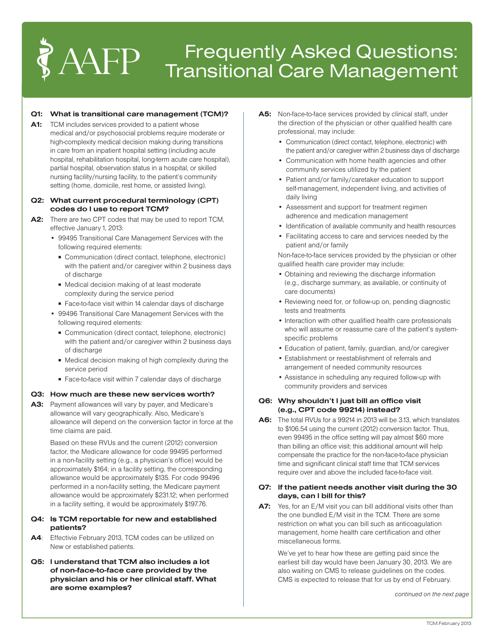Frequently Asked Questions: Transitional Care Management - American Academy of Family Physicians
Frequently Asked Questions: Transitional Care Management is a resource provided by the American Academy of Family Physicians. It aims to provide answers to common questions related to transitional care management, which involves the coordination and management of healthcare services as patients move from one healthcare setting to another.
FAQ
Q: What is Transitional Care Management?
A: Transitional Care Management (TCM) is a service provided to patients as they transition from an inpatient hospital setting to their home or next level of care.
Q: Who can provide Transitional Care Management?
A: Transitional Care Management can be provided by physicians, nurse practitioners, and physician assistants.
Q: How does Transitional Care Management work?
A: Transitional Care Management involves coordinating and following up on the patient's care after their hospital stay. It includes communication with the patient, their caregivers, and other healthcare providers.
Q: What are the requirements for billing Transitional Care Management?
A: To bill for Transitional Care Management, the patient must have a face-to-face visit within 7 or 14 days after discharge, and the care must involve moderate or high medical complexity.
Q: What is the purpose of Transitional Care Management?
A: The purpose of Transitional Care Management is to ensure a smooth transition for patients from the hospital to their home or next level of care, and to improve their healthcare outcomes.







